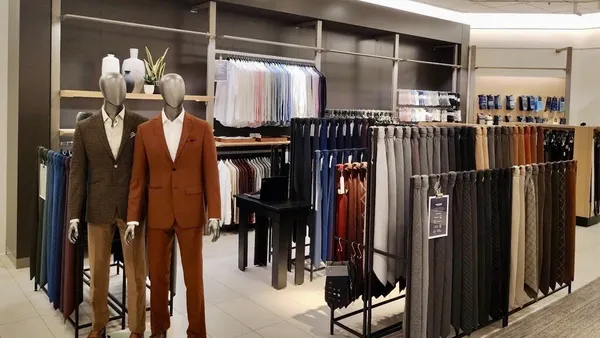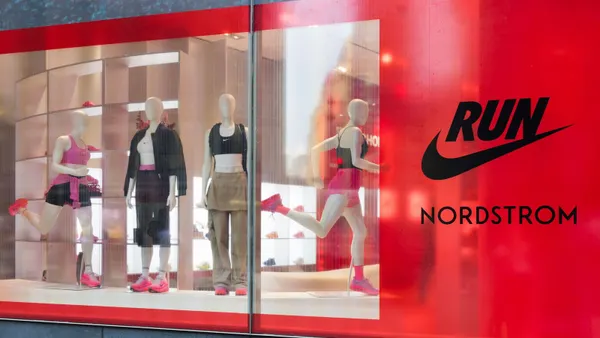Dive Brief:
-
Direct-to-consumer brand Floyd entered the resale market on Thursday with the launch of Full Cycle.
-
The circular marketplace will house used and imperfect products from Floyd's assortment and offer them to consumers at a discount of up to 50% off. The goal is to eliminate price point as a reason consumers opt for cheap furniture that won't last, according to details emailed to Retail Dive.
-
The company said it executed a complete reverse logistics overhaul and now offers in-home pickup of returns, which will then be transported to warehouses across the U.S. and made available through the resale platform.
Dive Insight:
DTC home brand Floyd launched in 2013 "out of a reaction to disposable furniture," according to the company.
Some 9.7 million tons of furniture and furnishings — which include sofas, tables, chairs and mattresses — ended up in a landfill in 2018, according to data from the Environmental Protection Agency.
Floyd, known for its flat-packed furniture — reminiscent of that from its much larger competitor, Ikea — has made it its mission to create high-quality products that won't be tossed to the curb.
The Full Cycle resale program is part of a five-pronged approach to becoming more sustainable by 2025, according to the company. The plan also includes ensuring 70% of material comes from recycled or renewable sources; minimizing packaging and eliminating single-use plastics; using 100% Forest Stewardship Council-certified wood on all products; and pushing to measure, disclose and reduce greenhouse gas emissions across its supply chain.
"Our furniture is built to last and designed to fit in any space," the brand said. "By creating a circular market for our products, we can ensure that even less furniture waste reaches landfills."
With an executive order in place that puts climate action front and center in federal policy, brands and retailers are increasingly feeling the pressure to act more sustainably. Ikea launched a resale program last year called "Buy Back" in 27 countries, though the U.S. was not among them. And in apparel — where 11.3 million tons of product in 2018 ended up in landfills, according to the EPA — Nike and Lululemon earlier this month launched their own recommerce initiatives.














